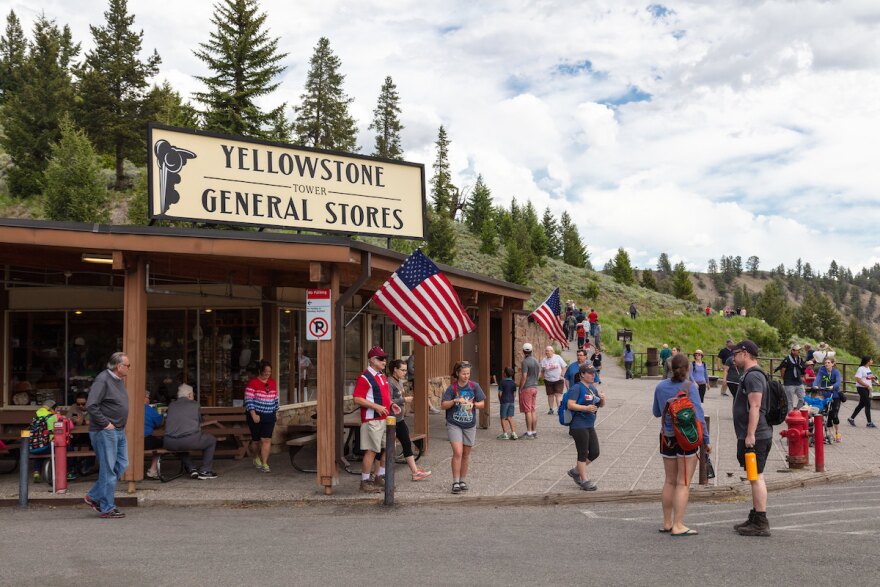Travel Industry Prepares For Setbacks From Coronavirus
Montana’s travel industry is already feeling the impact of the novel coronavirus. Many businesses are worried about the long-term impacts of current cancellations, slow bookings and labor shortages.
Nearly 70 percent of Montana businesses in the tourism industry said they expect to see a revenue loss this year. That’s according to a survey released Monday from the Institute for Tourism and Recreation Research at the University of Montana.
ITRR’s President Norma Nickerson says one of the big concerns survey participants reported was about employees getting sick, going into quarantine or staying home to take care of others.
“Tourism in Montana is a small business operation. It’s a lot of small businesses, and many of them will have 5, 10, 15 employees -- that’s it. And when one of them can’t be around, they might have to temporarily close their business," Nickerson says.
The survey wrapped up Friday before the first set of confirmed COVID-19 cases in Montana and subsequent business closure orders were announced. Still, between 30 and 50 percent of businesses reported booking cancellations. Fewer than 10 percent of survey respondents said their businesses were actually getting more bookings because Montana was perceived as a safe place to visit.
Nickerson says nearly 400 businesses responded to the survey in 48 hours, which she says shows COVID-19 is a big concern in the tourism industry.
“But the other part of it is, people want to know how other business people are reacting. By answering a survey, I think they felt, you know, we’re going to get some answers here. It’s not going to solve our problem, but it’s kind of like, misery likes company. Oh, we’re not the only ones," Nickersons says.
The World Travel and Tourism Council says the pandemic could shrink the global travel sector by up to 25 percent in this year.
Nickerson says ITRR plans on sending out the survey every two weeks to gauge the effects of the pandemic for however long it lasts.
“I’ve had a number of people call me and say, ‘Yeah, we’d like you to keep doing this because you could have a pulse on when it finally makes a turn.' Right now everybody knows it’s going to ramp up, but at what point is it going to go down and maybe then we have light at the end of this tunnel, so to speak,” Nickerson says.
Nickerson says many business owners have a "wait and see" attitude.
International airports in Montana are already feeling the squeeze. Brian Springer, president of the Bozeman Yellowstone International Airport, says his airport saw a sharp drop this week as ski vacationers headed home and weren’t replaced with incoming tourists.
“There’s been seen a significant decline in passenger traffic,” Springer says.
Twelve percent of tourists fly to Montana, mostly in the summer and winter.
Springer says he expects the biggest impacts to occur over the next two months with more cancellations and fewer bookings. He says the airport has been looking at what’s happening globally to come up with various scenarios for how this could play out over the coming months.
“Our most extreme scenario right now is an 80 percent reduction in passengers for the month of April and May and then a slow recovery," Springer says.
Springer says 1,000 people work at the airport. That includes staff for the airlines, rental car companies and food vendors. He says he doesn’t expect any of the 50 full-time employees who work for the airport will be cut.
Springer says some airlines will be reducing flights to certain destinations in April and May, but the details are still being worked out.
The nation’s major airlines asked the federal government for $50 billion in financial assistance Wednesday.
The U.S. Department of Transportation’s Essential Air Service program subsidizes flights from seven remote Montana towns and cities. EAS Spokesperson Erin Hatsell said Wednesday they’ve seen a decrease in advanced bookings, but so far there are no changes to flight schedules or capacity in Montana.
Copyright 2020 Yellowstone Public Radio


